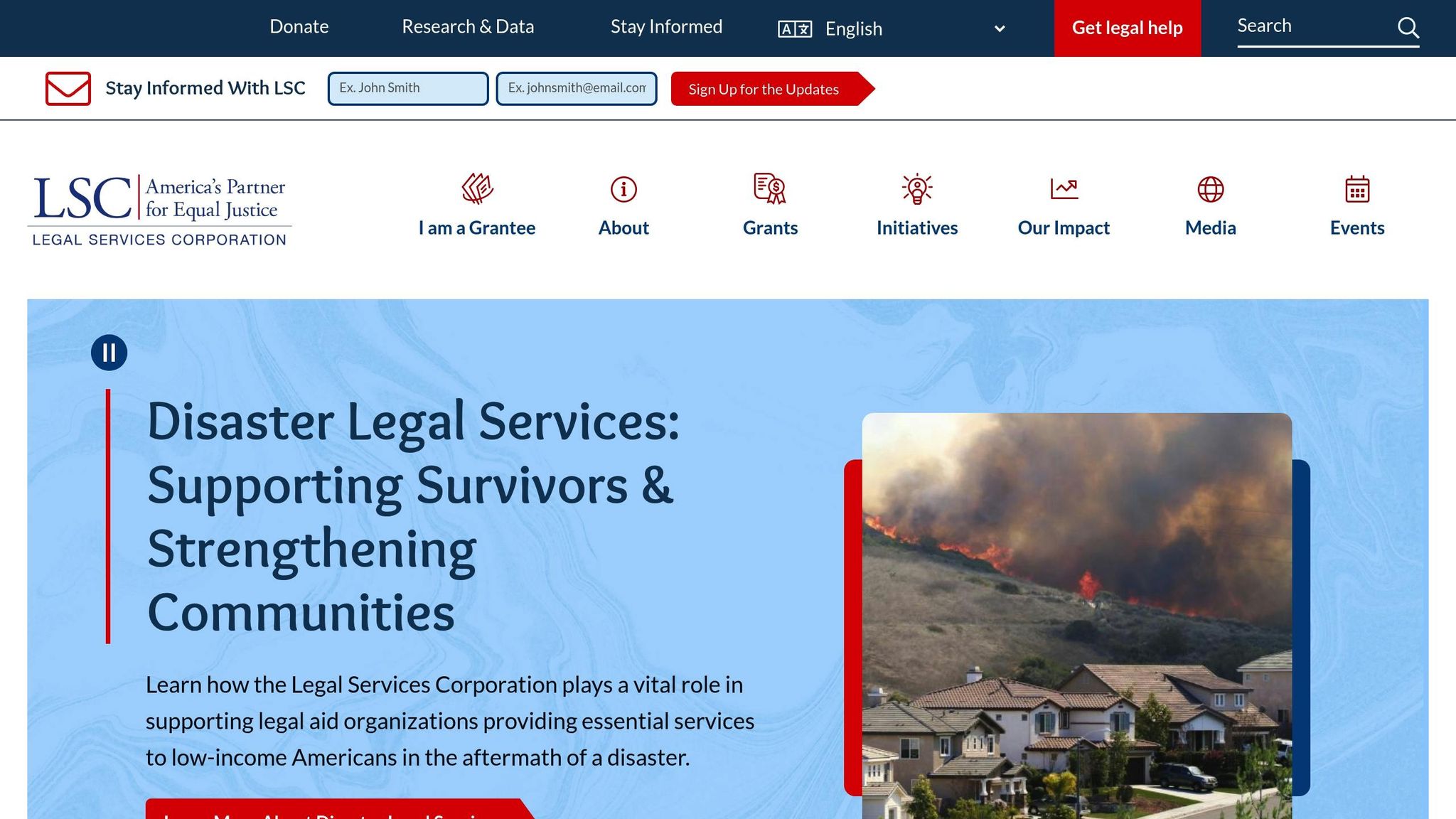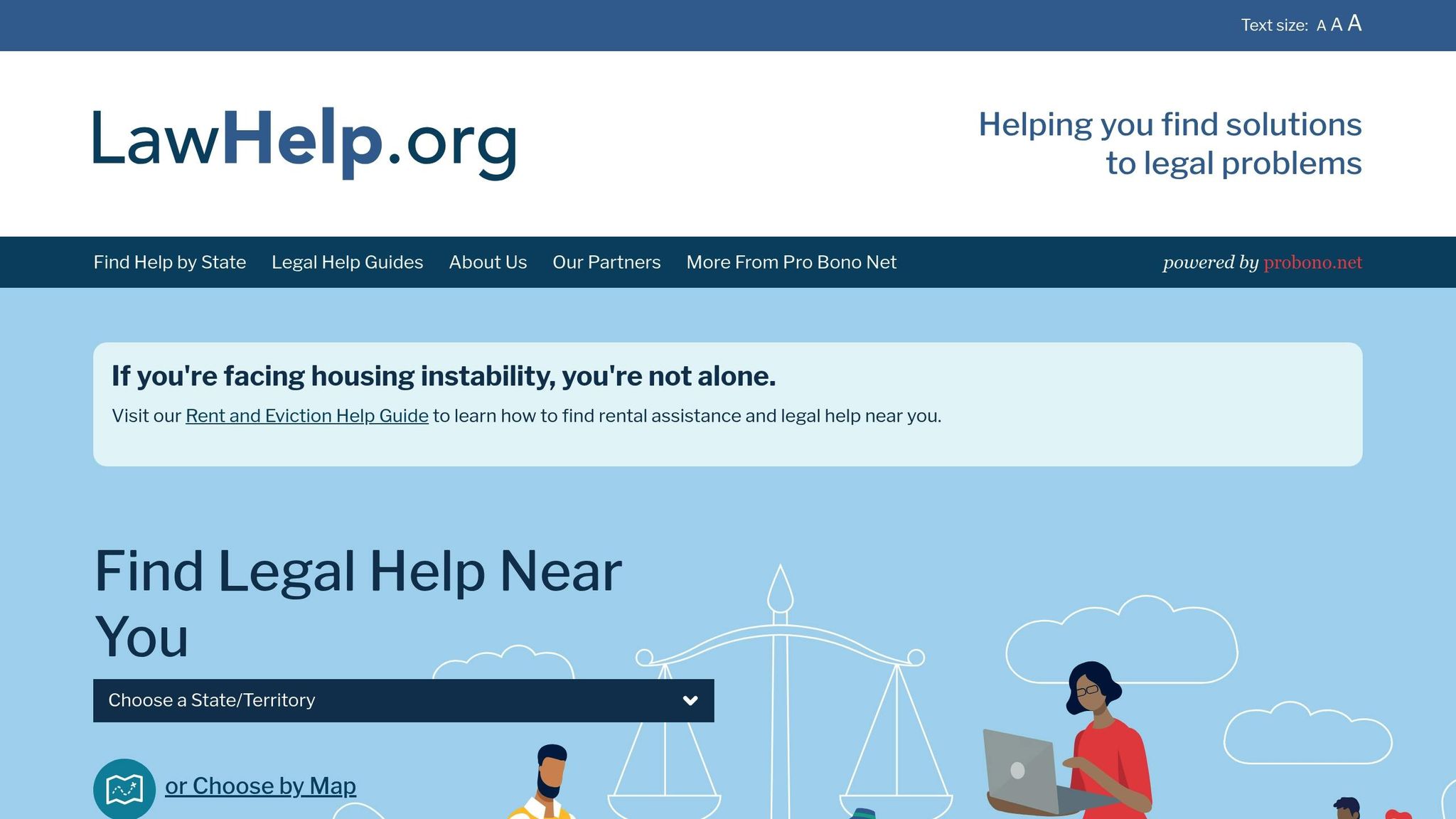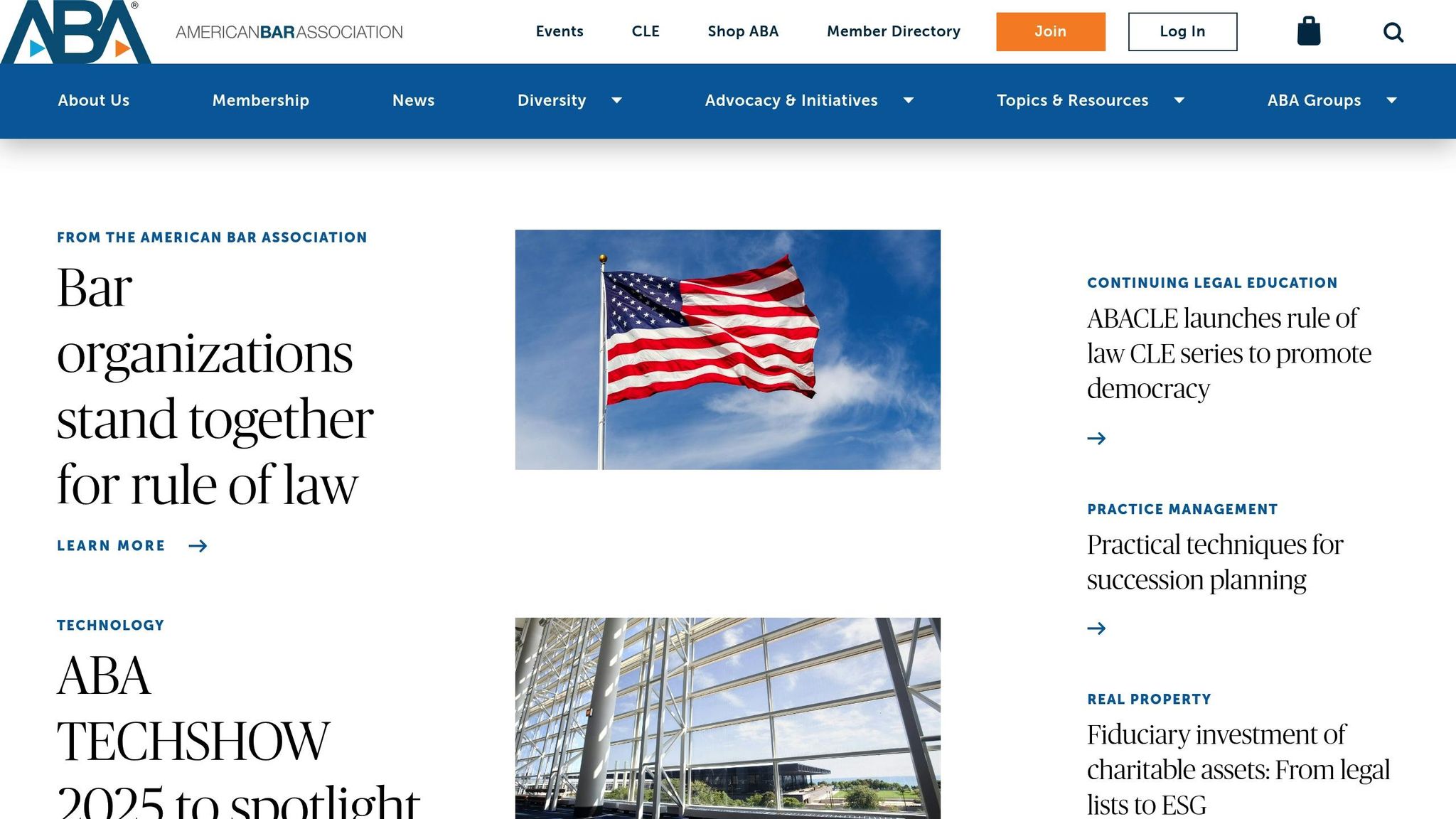If your family is facing legal challenges but can’t afford a lawyer, free legal aid can help. These services provide support for issues like custody battles, housing disputes, domestic violence, and immigration. Here’s how to get started:
- What You Get: Free legal advice, document preparation, court representation, and mediation.
- Who Offers Help: Organizations like Legal Services Corporation (LSC), LawHelp.org, and the American Bar Association (ABA).
- How to Begin: Define your legal issue, find local services, check eligibility, apply, and use online tools while waiting.
Free legal aid ensures access to justice, even for families with limited income. Keep reading for detailed steps and resources to secure the help you need.
What Free Legal Aid Offers
Basic Definition
Free legal aid provides legal representation and advice at no cost to individuals and families with limited income. It ensures that those who can’t afford a lawyer still have access to legal help when needed.
Types of Cases Covered
These services typically focus on civil cases that impact daily life, such as housing, family disputes, or employment issues. To learn more about what’s available in your area, reach out to your local legal aid organization. From there, you can explore the specific resources and services they offer.
Main Legal Aid Resources
Here are some trusted organizations that provide free legal aid for families:
Legal Services Corporation (LSC)

Legal Services Corporation is a federally funded organization that helps families find free legal aid for civil cases. To use their services, go to LSC.gov and try the "Find Legal Aid" tool. Simply enter your ZIP code, and it will connect you with local organizations offering legal assistance.
LawHelp.org Services

LawHelp.org is an online resource designed to link families with free legal help and information. Key features include:
- Legal information tailored to your state
- A "Find Legal Help Near You" search option
- Self-help tools for creating legal documents
The LawHelp Interactive tool is especially useful for preparing documents related to housing, family law, or debt collection. It’s a straightforward way to find local legal support.
American Bar Association Help

The American Bar Association runs the Free Legal Answers program, a virtual clinic where families can connect with volunteer attorneys. Users can submit legal questions online and get responses from licensed attorneys, offering quick and reliable legal advice.
5 Steps to Get Legal Aid
1. Define Your Legal Issue
Start by identifying your legal problem and gathering key details. Common issues include child custody, housing disputes, domestic violence, public benefits, and debt-related matters. Make a list of important dates, names, and any relevant documents to help legal aid providers better understand your situation.
2. Find Local Services
Look for legal aid offices in your area using state-specific directories or by asking for referrals at your local courthouse. Focus on organizations that serve your county or region, and don’t hesitate to ask courthouse staff for additional guidance.
3. Review Requirements
Check the eligibility criteria for the legal aid providers you’re considering. These often include:
- Income limits
- Residency in the service area
- U.S. citizenship or qualifying immigration status
- Case type qualification
Make sure you meet the requirements before applying.
4. Apply for Help
When you’re ready to apply, call during business hours and have the following ready:
- Basic personal details
- A short explanation of your legal issue
- Questions about what documents you’ll need
- A request to schedule an intake interview
Take thorough notes during any phone screenings to keep track of important information.
5. Use Online Tools
While waiting for assistance, make use of these online resources:
- LawHelp Interactive for creating legal documents
- Court websites for forms and procedural guidance
- Legal aid organizations’ websites for additional tips
- ABA’s Free Legal Answers for quick, free advice
These tools can help you stay prepared while waiting for professional support.
Next, let’s dive into how legal aid can be tailored to specific needs.
sbb-itb-a1a8504
Legal Aid for Specific Needs
Help with Domestic Violence
Families dealing with domestic violence can find immediate legal assistance through specialized resources. Check out StatesideLegal.org for advice and options to ensure safety and protection.
Veterans and Senior Services
Certain groups, like veterans and seniors, have access to tailored legal support. StatesideLegal.org provides tools and information for issues like VA benefit claims, discharge upgrades, healthcare, housing disputes, and education benefits. Seniors can also use the nationwide map on the site to locate local legal providers for help with Social Security and other benefits.
Immigration Help
Immigration issues often require specific legal guidance. Families navigating these challenges can explore resources on topics such as citizenship applications, visa procedures, civil rights, and voting rights at StatesideLegal.org.
Tips for Success
Stay in Touch
Keep an eye on your legal aid application status by checking online or calling regularly. Whenever you contact them, jot down key details like the representative’s name, the date and time, any reference numbers, and the next steps they mention. Having a clear record of these interactions can make the process smoother. Also, make sure all your paperwork is in order to back up your claim.
Get Your Documents in Order
Make sure you have all the necessary documents ready to go. These might include:
- Proof of Income: Pay stubs, tax returns, or other income records
- Photo Identification: Driver’s license, passport, or other ID
- Proof of Residency: Lease agreements, utility bills, or similar
- Legal Documents: Any court papers or related documents
- Financial Records: Bank statements or other financial information
- Benefits Information: Details about any public assistance you receive
Having these documents organized and easily accessible will save time and reduce stress.
Conclusion
To summarize, getting free legal help starts with clearly identifying your legal issue. Organizations like LSC, ABA, and local legal aid societies are excellent resources for reliable assistance.
Act quickly – starting the process early increases your chances of getting timely help. Make sure to check your eligibility and have all necessary documents ready to keep things moving smoothly.
If your first efforts don’t work out, don’t give up. With preparation and persistence, you can secure the support your family needs to tackle legal challenges.
